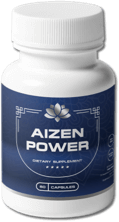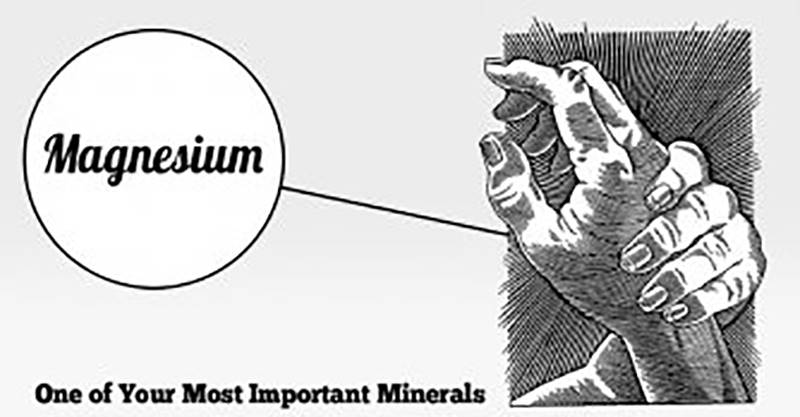Magnesium is one of the most important minerals, and unfortunately, it is often overlooked, which leads to the high percentage of people deficient in it. Magnesium deficiency can be a serious health issue and the root cause of various ailments and diseases.
Carolyn Dean is a medical and naturopathic doctor, the lead author on the 2003 seminal paper “Death by Medicine” that showed that modern medicine is, in fact, one of the leading causes of death in the United States, and the book Death by Modern Medicine, and was awarded the Arrhythmia Alliance Outstanding Medical Contribution to Cardiac Rhythm Management Services Award 2012.
She has studied and written about the role of magnesium for years, and her book, The Magnesium Miracle, reveals all unknown facts linked to the importance of this mineral.
She says:
-- Advertisement --
Dominate The Male Enhancement Niche Today

“What I want to convey today is the importance of magnesium, how you can get it, how you can know how much you require in your body, and the incredible benefits from using this simple mineral.”
Magnesium is essential for our overall health since it performs various vital biological functions, like the digestion of fats, carbs, and proteins, the activation of the nerves and muscles, the creation of energy by activating adenosine triphosphate (ATP), the formation of neurotransmitters like serotonin, and acts as a building block for RNA and DNA synthesis.
What is of real importance is that the levels of magnesium and calcium in the body are in an adequate balance, but unfortunately, modern diets are rich in calcium and very low in magnesium.
Dr.Dean explains:
“What happens is, the muscle and nerve function that magnesium is responsible for is diminished. If you don’t have enough magnesium, your muscles go into spasm. Calcium causes the muscle to contract. If you had a balance, the muscles would do their thing. They’d relax, contract, and create their activity.”
Since magnesium is critical for heart health, such an imbalance might lead to a heart attack and even death. Moreover, calcium and magnesium need to be balanced with vitamin D and K2 as well.
Namely, vitamin K2 keeps calcium in its appropriate place, and in the case of its low levels, calcium might accumulate in the body and cause serious health issues.
Also, taking mega doses of vitamin D supplements without the needed amounts of K2 and magnesium might cause vitamin D toxicity and magnesium deficiency symptoms. Therefore, you should always bear in mind that these nutrients work synergistically, so you need to maintain their balance in the body.
Yet, while calcium is generally present in our diets, and we consume it through dairy, nuts, seeds, and green leafy veggies, magnesium is a bit scarcer in our modern food supply.
According to Dr.Dean:
“Magnesium is farmed out of the soil much more than calcium. A hundred years ago, we would get maybe 500 milligrams of magnesium in an ordinary diet. Now we’re lucky to get 200 milligrams. People do need to supplement with magnesium.”
You can check if you are magnesium deficient by doing an RBC magnesium test, but you should also learn to recognize the early signs of magnesium deficiency:
- Muscle cramps
- Numbness and tingling
- Seizures
- Abnormal heart rhythms
- Coronary spasms
- Personality changes
These are the recommended daily requirements of magnesium:
- Infants
- Birth to 6 months: 30 mg/day*
- 6 months to 1 year: 75 mg/day*
*AI or Adequate Intake
Children
- 1 to 3 years old: 80 milligrams
- 4 to 8 years old: 130 milligrams
- 9 to 13 years old: 240 milligrams
- 14 to 18 years old (boys): 410 milligrams
- 14 to 18 years old (girls): 360 milligrams
Adults
- Adult males: 400 to 420 milligrams
- Adult females: 310 to 320 milligrams
- Pregnancy: 350 to 400 milligrams
- Breastfeeding women: 310 to 360 milligrams
- Adult males: 400 to 420 milligrams
In case you can find biologically-grown organic foods, you will be able to get magnesium from your food. As chlorophyll has a magnesium atom in its center, some excellent magnesium sources include seaweed and green leafy vegetables, some beans, avocados, nuts, and seeds, like pumpkin, sunflower and sesame seeds.
Franziska Spritzler, RD, CDE, lists the following excellent rich magnesium sources:
- Pumpkin seeds: 46% of the RDI in a quarter cup (16 grams)
- Spinach boiled: 39% of the RDI in a cup (180 grams)
- Swiss chard boiled: 38% of the RDI in a cup (175 grams)
- Dark chocolate (70–85% cocoa): 33% of the RDI in 3.5 ounces (100 grams)
- Black beans: 30% of the RDI in a cup (172 grams)
- Quinoa, cooked: 33% of the RDI the in a cup (185 grams)
- Halibut: 27% of the RDI in 3.5 ounces (100 grams)
- Almonds: 25% of the RDI in a quarter cup (24 grams)
- Cashews: 25% of the RDI in a quarter cup (30 grams)
- Mackerel: 19% of the RDI in 3.5 ounces (100 grams)
- Avocado: 15% of the RDI in one medium avocado (200 grams)
- Salmon: 9% of the RDI in 3.5 ounces (100 grams)
Yet, we strongly advise you to take magnesium supplements as well, as most foods these days have been treated with herbicides, that block the uptake and utilization of minerals.
Source: articles.mercola.com



It’s known, for example, that magnesium interacts with GABA receptors, supporting the calming actions of this neurotransmitter. Magnesium also keeps glutamate—an excitatory neurotransmitter—within healthy limits. Patients with higher magnesium levels also have healthy amounts of serotonin in the cerebrospinal fluid. And the synthesis of dopamine requires magnesium. neurotransmitters (biosynthesis) and for those neurotransmitters to actually transmit. Magnesium also acts at both the pituitary and adrenal levels. In the pituitary gland, it modulates the release of ACTH, a hormone that travels to the adrenal glands, stimulating cortisol release. In the adrenal gland, it maintains a healthy response to ACTH, keeping cortisol release within a normal range. As a result, magnesium is a must for maintaining the homeostasis of the HPA axis. Given all these key mechanisms of action, it’s not surprising that a lack of the mineral can produce psychiatric and other types of problems. The patient may have: Difficulty with memory and concentration. Depression, apathy and fatigue. Emotional lability. Irritability, nervousness and anxiety. Insomnia. Migraine headaches. Constipation. PMS. Dysmenorrhea. Fibromyalgia. Autism. ADHD. Fortunately, studies show that magnesium repletion—restoring normal levels of the mineral—produces positive changes in mood and cognition, healthy eating behavior, healthy stress responses, better quality of sleep, and better efficacy of other modalities, such as medications. Let’s look at two areas in which magnesium supplementation is particularly effective: Depression and ADHD.